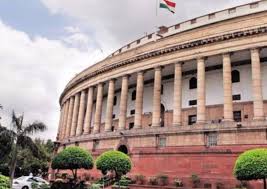
Dr APJ Abdul Kalam inaugurated the 2nd National NCD Summit on 18th July,2014 organized by the Confederation of Indian Industry (CII) and Eli Lilly and Company with IMS Health as the exclusive knowledge partners.
“Rapid economic development in Asian countries, particularly India has led to a shift in health problems from communicable diseases to non-communicable diseases with diabetes and cardio-vascular diseases leading the list. I am very glad that PSUs are adopting measures to take care their employees’ health, infact a ‘Diabetes Free Employees’ movement should be started in organizations. I hope that these collaborative efforts will help in better prevention and management of the disease for all” said Dr. APJ Abdul Kalam, Former President of India.
The Summit is aimed at creating a national level platform to strengthen and help shape public health strategies for comprehensive diabetes management, particularly amongst Public Sector Enterprises. The initiative hopes to address the larger objective of making India better prepared to combat the rising burden of diabetes.
“Non-communicable diseases take a heavy toll on human lives and also affect economic productivity. Taking the right steps now will help organizations plan better for the health of their employees leading to higher efficiency and productivity in the long run.” said Ms. Shobana Kamineni, Chairperson, CII National Committee on Public Health.
The White Paper was developed on the basis of the recommendations that emerged from roundtable discussions held in cities with a strong PSE presence such as Hyderabad, Kolkata, Mumbai, Bangalore and Raipur. These roundtables saw participation from PSE medical directors, health professionals and industry experts. Key insights from these consultations were compiled, analyzed and actionable recommendations were developed which were then presented at the National NCD Summit 2014.
Mr CS Verma, Chairman SCOPE, Chairman and Managing Director, Steel Authority of India Limited (SAIL) highlighted that “Preventive measures for Diabetes control will be taken as a mission in PSEs. PSEs under the aegis of SCOPE, would also come together to collaborate in R&D for Diabetes Control and developing technology based innovative solutions.”
“Non-communicable diseases constitute a very large spectrum of the overall disease scenario of the country. The diseases that come within this gamut are diabetes, hypertension, coronary heart diseases and cancer, which to a large extent are preventable. There are already 60 million diabetes patients in India and in the next 15 years this number can go up to a 100 million. We can certainly control these diseases if we know the preventive strategies and early diagnosis is key. The healthcare delivery
system can be improved if everyone contributes.” said Dr. Harsh Vardhan, Union Minister of Health & Family Welfare.
The summit sensitized stakeholders on policies and practices for NCD control with a special focus on diabetes. It facilitated learning and sharing of best practices and trends to strengthen diabetes management in PSEs.
Edgard Olaizola Story, Managing Director of Lilly India said “There are close to 254 central Public Sector Units (PSUs) employing over 14.44 lakh people in India and the burden of non-communicable diseases in these organizations is high. We see this initiative as a first step in helping the country’s largest business sector tackle the management of NCDs. We are committed to reducing the diabetes burden in India and globally, and are happy to take this initiative forward.”
Highlights from the 2nd NCD National White Paper
Adopting a ‘healthy environment’ e.g. no convenience machines, taking activity breaks, encourage walking, availability of healthy food choices in canteens, integrating health clinics with gyms and fitness centers
Develop a common framework for the NCD policy in consensus with PSEs and other stakeholders.
Develop and promote nutrition policies in PSEs to limit content of sugar in food and non-alcoholic beverages; limit excess calorie intake and reduce portion size and energy density of foods
Design new policy/guideline or revisit and reframe existing health policies for screening and diagnosis of NCDs at the workplace.
Conduct Periodic Medical Examination (PME) for employees, ensure regular follow up based on age and location in line with the advice of the treating physician
Organize Continuing Medical education (CME) programs in PSEs for healthcare providers to address provider attitudes toward diabetes and update knowledge. Organize standardized orientation programs for the medical team managing NCDs in PSEs
Create a standardized and integrated IT system to manage a diabetes registry to generate reports for analyzing a patient’s key diabetes-related measures and help track patient’s progress.
Collaborate with government agencies, premier medical and technical institutions to utilize already existing Information and Communication Technologies (ICT) platforms like telemedicine
All public sector enterprises are free to implement any or all of these recommendations as part of their employee healthcare plans. They can customize these guidelines to suit the needs of their employees.
The summit helped increase exposure to technology and advances in the field of diabetes and improve awareness of the challenges and opportunities experienced by people living with diabetes, especially the employees of public sector enterprises.








Leave a Reply
You must be logged in to post a comment.